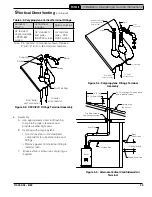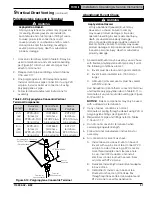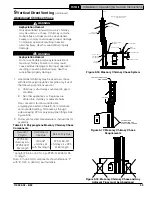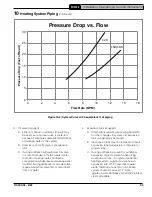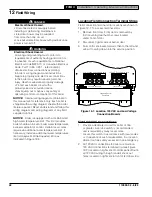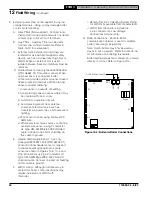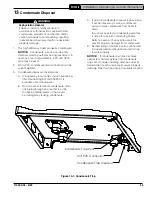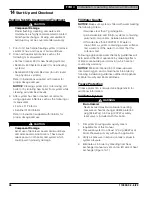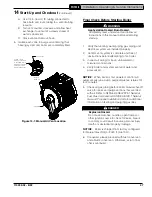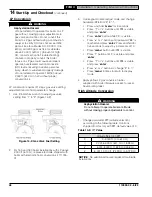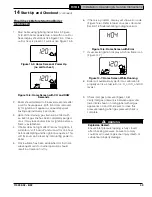
41
110332-02 - 6/22
PHTM II
Installation, Operating & Service Instructions
Table 10-7: Recommended Piping Configuration
11
Gas Piping
WARNING
Explosion Hazard.
• Failure to properly pipe gas supply to boiler
could cause improper operation or leaks of
flammable gas resulting in severe personal
injury, death or substantial property damage.
• Gas supply to boiler and system must be shut
off prior to installing or servicing boiler gas
piping.
!
1. Gas piping must be sized to deliver adequate gas
for boiler operation. Consider the following:
A. If gas pressure in building is above 1/2 psig
(3.4 kPa), an additional gas pressure
regulator is required. If additional regulator is
used to reduce boiler inlet pressure, it must
be at least 6 to 10 ft. (1.8 to 3.0 m) upstream
of boiler.
B. Pressure drop from point of delivery to boiler.
See Table 3-4 for inlet gas pressure
requirements.
C. Existing and expected future gas using
equipment (i.e. water heater, cooking
equipment, etc.).
2. Use methods and materials in accordance
with local plumbing codes. In absence of such
requirements, follow NFPA 54/ANSI Z223.1
National Fuel Gas Code
and/or CAN/CSA B149.1
Natural Gas and Propane Installation code
. Figure
11-1 shows typical gas piping and connection to
boiler.
A. Use thread compound compatible with
liquefied petroleum gas.
B. A sediment trap must be installed upstream of
gas controls.
C. A manual shut-off valve (provided in parts
carton) must be installed within 6 ft. (1.8 m) of
boiler.
D. Support weight of gas piping
independently from boiler gas connection.
3. Boiler and its gas connection must be leak
tested before placing boiler in operation.
A. For pressure testing at equal to or less than
1/2 psig (3.4 kPa) close manual shut-off valve.
B. For pressure testing above 1/2 psig (3.4 kPa)
disconnect boiler and manual shut-off valve.
Figure 11-1: Gas Piping
Gasket
Gas Valve Adapter
(1/2" NPT)
Ground Joint Union
Manual Shutoff Valve
3" Min. Drip Leg
Cap
Direction of Gas flow
DANGER
Explosion Hazard.
Do not use matches, candles, open flames or
other ignition sources to check for leaks. Failure
to comply could result in severe personal injury,
death or substantial property damage.
C. Locate leaks using listed combustible gas
detector, a non-corrosive leak detection fluid
or other listed leak detection method. Repair
any leaks found immediately.
!



